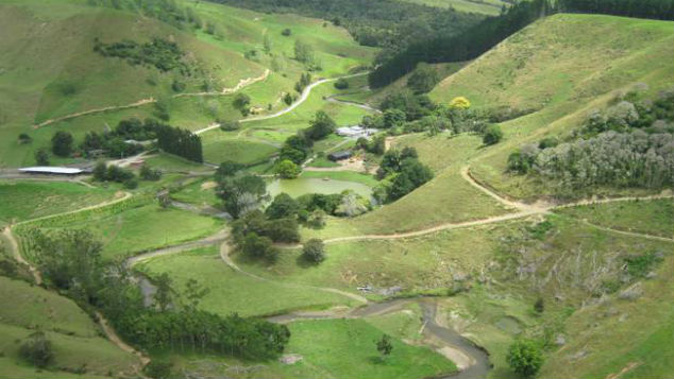
Instead, Justice Christian Whata accepted that all of the cash was the profits of a commercial cannabis operation and assets seized by police will now be forfeited.
This includes the 60ha lifestyle property in Hauturu owned by Ronnie and Penelope de Wys, worth $530,000 in 2016, which will now be independently valued.
The judgment of Justice Whata is the latest twist in a 10-year saga.
The de Wys couple were never charged with growing cannabis.
But the police restrained their assets in 2012 under the Criminal Proceeds Recovery Act, which essentially forces someone to prove how an asset was paid for.
These cases are determined by the civil level of proof, the "balance of probabilities", rather than the much higher criminal evidential threshold of "beyond reasonable doubt".
In a rare loss for the police in these types of cases, Justice John Faire was not convinced by the police case and ruled in favour of the de Wyses in 2015.
This was overturned by the Court of Appeal the following year which found Justice Faire failed to consider the combined weight of the circumstantial evidence.
The Court of Appeal was satisfied the de Wyses ran a commercial cannabis operation but the case was sent back to the High Court to determine how much money they made from the illegal crops.
The couple first came to the attention of police in 2008 when they bought the 60ha property on Kihi Rd in Hauturu, west of Te Awamutu.
Cash deposits totalling $320,000 were made into the de Wyses' bank accounts leading up to the settlement, which the banks reported to the police as suspicious transactions.
Financial analysis by the police showed nearly $730,000 of unexplained cash income in the years leading up to the purchase of the Kihi Rd property.
The police investigation found evidence of cannabis cultivation on the Putaruru farm where the de Wyses previously worked.
The couple denied any involvement in growing cannabis.
Instead, they claimed the cash was from timber milling, selling firewood and farm machinery, scrap metal and livestock.
Their recollections of these cash transactions between 2001 and 2008 were recorded in a red book. These were written down after the police seized their assets.
One entry in the red book was the sale of scrap metal to "Santa Claus" for $60,000.
The de Wyses also gave evidence of $230,000 cash in a tin box saved before 2000. This was before the period of time investigated by police.
They also tried to prove that, even if they were growing cannabis, they could not have cultivated enough plants to earn $730,000.
This was based on the evidence of former long-serving police detective, who is now a private investigator.
However, in his written judgment, Justice Whata said the innocent explanations of the de Wyses failed to rebut the police case on the balance of probabilities.
There were substantial problems with the analysis about the size of the crops, said Justice Whata, as the former detective made a number of assumptions which could be challenged.
And in Justice Whata's view, the evidence of Ronnie and Penelope de Wys about the red book and tin box savings was not credible.
There were more than 200 transactions in the red book, spanning eight years, and very few could be corroborated by a paper trail.
None were verified by independent witnesses and Justice Whata said the evidential value of the red book was undermined as it was written by memory.
The red book was drafted only after the de Wyses had been served with a copy of the restraining order.
The sum identified in the red book ($398,410) happens to nearly correspond with the sum claimed in that application ($380,000).
"This remarkable coincidence was not cogently explained by the de Wyses," said Justice Whata.
"Implausibly, specific dates for these transactions over a 10-year period are noted, even though there is very little contemporaneous documentation to support them."
The explanations offered by the de Wyses for the unexplained cash lacked credibility, said Justice Whata.
He highlighted one passage of Mr de Wys giving evidence under cross-examination as "worthy of repetition".
Q: You record that in December 2007 there was 300 tonnes of scrap metal at $200 a tonne, sold for a return of $60,000?
A: Yeah I'm not too sure on that $200 a tonne because it wasn't sold as a tonne.
Q: $60,000 cash, yes?
A: Yeah.
Q: Who from?
A: From the scrap man.
Q: Who is he?
A: I don't know. I don't know his name. All I know, all I thought, just known him as Santa Claus.
The ruling means the de Wyses failed to convince Justice Whata there was an innocent explanation for the $730,000 in cash.
The next step is for the restrained assets, including a digger, to be independently valued before final forfeiture orders are made.
Detective Inspector Craig Hamilton, in charge of the police asset recovery units across the country, said the result was pleasing.
"This shows how vigilance by the banks, coupled with rigorous investigation, can ultimately lead to criminal profits being confiscated."
In the past five years, the police have restrained just under $250 million of assets.
Take your Radio, Podcasts and Music with you









